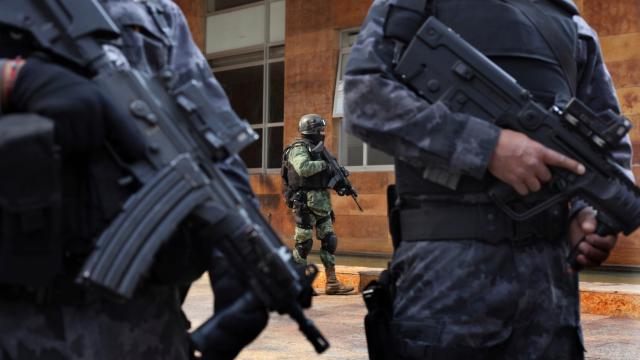The FBI has arrested the owner of Phantom Secure, one of a number of phone companies that it claims sells customised BlackBerry and Android devices for use in international criminal organisations.
Per Motherboard, court records and interviews with anonymous sources indicate that the FBI, along with Canadian and Australian police, targeted Phantom Secure for deliberately selling drug cartels phones designed for criminal activity. According to the report, the FBI says that the company and CEO Vincent Ramos knew full well that their devices were being used in violent crime:
A complaint filed in the Southern District of California on Thursday charges Vincent Ramos, the founder and CEO of Canada-based Phantom, with racketeering conspiracy to conduct enterprise affairs, as well as conspiracy to distribute narcotics, and aiding and abetting. Authorities arrested Ramos on Thursday, according to the court docket. Crucially, the complaint alleges that Ramos and Phantom were not simply incidental to a crime, like Apple might be when a criminal uses an iPhone, but that the company was specifically created to facilitate criminal activity.
The phones in question had cameras, microphones, and standard connectivity functions disabled and a version of Pretty Good Privacy that routes messages overseas added, with FBI alleging the company allowed customers to remotely wipe data.
For people allegedly in the business of helping gangs like the Sinaloa Cartel and Hells Angels operate under the radar of the authorities, Phantom staff were remarkably indiscreet. Motherboard reported that some of the company’s customers used email addresses like “Leadslinger,” “trigger-happy,” “knee_capper9,” and — come on — “the.cartel”. Undercover Canadian police also reported that when asked if the phones were good for “sending MDMA to Montreal,” Phantom staff replied that would be “totally fine.”
“We made it – we made it specifically for this [drug trafficking] too,” Ramos allegedly told undercover police.
The FBI (as well as other US law enforcement organs like the Department of Justice) has been waging a war on encryption technology for a while, claiming that criminals equipped with impregnable mobile devices are interfering with its ability to conduct investigations. It’s also tried to force companies like Apple to build surveillance backdoors into their devices, which could potentially weaken the security features available to normal users with no intent of breaking the law.
Dutch police in particular have pursued companies that allegedly provide encryption services to aid in the commission of crimes, Motherboard noted, cracking down on Ennetcom in 2016 and PGP Sure last year. Dutch cops also claim to be able to break past encryption on PGP-enabled BlackBerry devices.
[Motherboard via Engadget]
